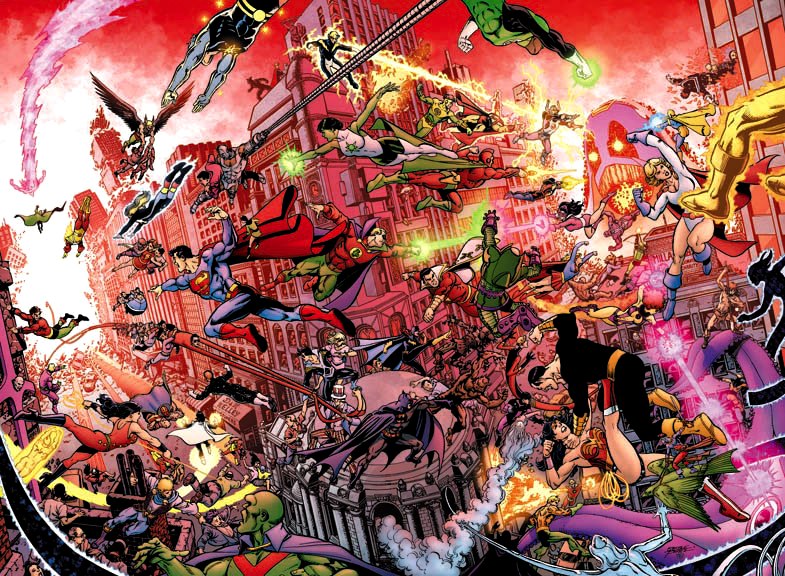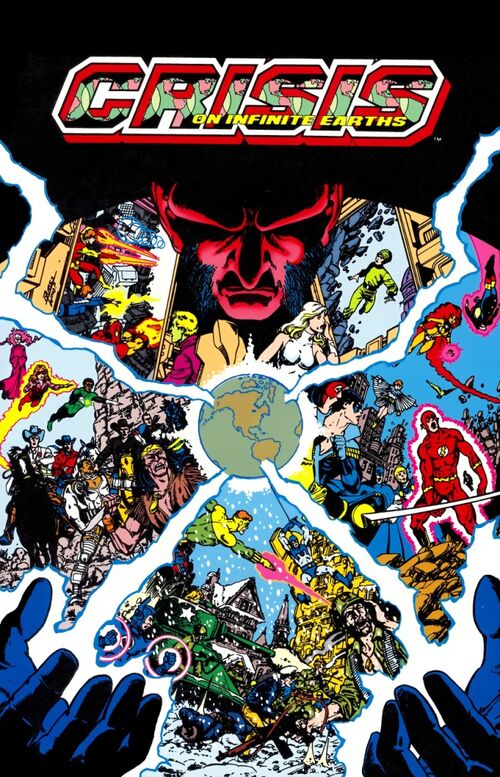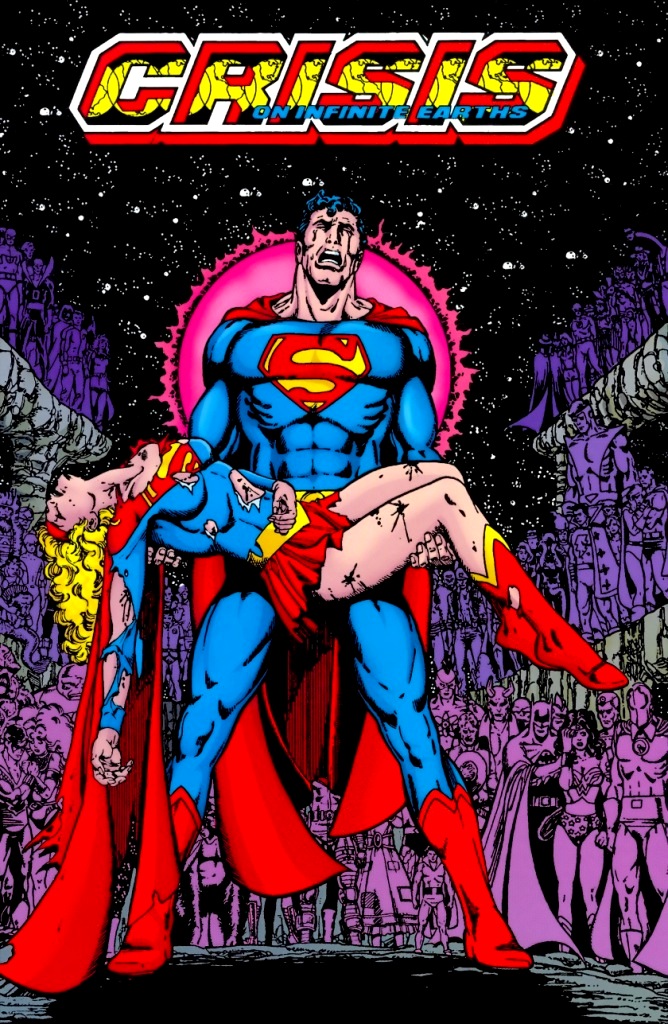Science Fiction & Fantasy
Movies.
Television.
Comic Books.
Video Games.
For all of these and more, the word diversity has grown in importance. Viewer, readers, and players are speaking up and demanding more and better representation-for women, LGBT people, People of Color, and other oppressed groups.
Laurie Penny writes about a culture war going on:
There’s a culture war happening right now. It’s happening in games, in film, in journalism, in television, in fiction, in fandom. It’s happening online, everywhere. And everywhere, sexists, recreational misogynists and bigots are losing.
They are losing, and they don’t know why.
I’ve been thinking a lot, this week and last week, about what it is that’s changing in culture, about what women are doing, and what is being done to us in revenge. I’ve been thinking about what happened to Jennifer Lawrence; about what happened to Zoe Quinn; about what happened to Anita Sarkeesian; about what’s been happening to every games and culture writer with the gall to be female or to defend feminism; and I’ve been thinking, unavoidably, about what’s happened to me, over the course of three years of harassment and abuse.
This a song we know by now. It starts and ends, almost always, with attacks on our sexuality, on our bodies as meat and function: our sexual and relationship history is broadcast everywhere, which is what happened to games developer Quinn, after an ex-boyfriend posted a disturbed, disturbing novella-length attack on everything she is and everything she stands for. The gamersphere then collectively wet its knickers over not being allowed to mercilessly slut-shame their chosen target without being called out, because freedom of speech.
The routine, the arguments, have become far too familiar. A woman or a handful of women are selected for destruction; our ‘credibility’ and ‘professionalism’ are attacked in the same breath as we are called ugly, slut-shamed for dismissed either as stupid little girls or bitter old women or, in some cases, both. The medium is modern, but the logic is Victorian, and make no mistake, the problem is not what we do and say and build and create.
The problem is that women are doing it. That’s why the naked selfies, the slut-shaming, is not just incidental to the argument – it is the argument. Underneath it all, you’re just a woman, just a body. You can be reduced to flesh. You are less. You are an object. You are other. LOL, boobs.
The problem is that women are creating culture, changing culture, redefining culture, and those cunts, those poisonous cunts, those disgusting, uppity cunts must be stopped.
She’s angry and she has every right to be.
****
Unacceptable. That’s what Dana Hunter says about the ongoing battle against sexism and misogyny:
Now. This is going to be quite the nasty shock to some people who didn’t have any idea one of their heroes was an alleged sexual predator. And it’s going to be a nasty shock to people who heard the initial accusations, but figured it was all some big mistake, or hysterical Michael Shermer haters, and would all blow over. It must be horrible for them to realize it’s not blowing over, but blowing up. Well, that’s what happens when you don’t pay attention, and don’t listen to the people telling you there’s a problem, for years.
You’re going to want to duck and hide from the blast. But you need to steel yourself and face this squarely. Michael Shermer has had not one, not two, but three named women accuse him of inappropriate sexual behavior. Three women willing to face a shitstorm of abuse and possible legal threats in order to tell a reporter that Shermer did not-right things to them is not a minor matter. If you’re having that knee-jerk “this can’t be happening and Michael would never” reaction, you need to bite your tongue as hard as is necessary to stop it, and read that article thoroughly. Read it multiple times. Let it sink in.
Don’t say anything yet.
Read the timeline, wherein now-named people shared their stories, and still-anonymous people also have said Shermer victimized them, and named people not in the article have said Shermer harassed or assaulted them. Granted, these are not allegations that have been proved in a court of law. Shermer is stilllegally innocent, and will remain so unless he is convicted in a courtroom. But there comes a time when you need to take into account the fact that multiple people are saying similar things, and recognize that this is information you need to take into account before you spring to his defense. We do not need evidence beyond reasonable doubt when we’re considering whether to keep extending our respect to a person, and when we’re deciding whether to continue inviting him to speak, and whether he’s still welcome in our spaces.
As she says, we know more than enough information to be concerned about Michael Shermer’s predatory actions. He is deserving of neither respect nor invitations to conventions.
****
Over at Gamasutra Leigh Alexander argues that traditional gaming culture and gamers as we know them are over:
Yet in 2014, the industry has changed. We still think angry young men are the primary demographic for commercial video games — yet average software revenues from the commercial space have contracted massively year on year, with only a few sterling brands enjoying predictable success.
It’s clear that most of the people who drove those revenues in the past have grown up — either out of games, or into more fertile spaces, where small and diverse titles can flourish, where communities can quickly spring up around creativity, self-expression and mutual support, rather than consumerism. There are new audiences and new creators alike there. Traditional “gaming” is sloughing off, culturally and economically, like the carapace of a bug.
This is hard for people who’ve drank the kool aid about how their identity depends on the aging cultural signposts of a rapidly-evolving, increasingly broad and complex medium. It’s hard for them to hear they don’t own anything, anymore, that they aren’t the world’s most special-est consumer demographic, that they have to share.
We also have to scrutinize, closely, the baffling, stubborn silence of many content creators amid these scandals, or the fact lots of stubborn, myopic internet comments happen on business and industry sites. This is hard for old-school developers who are being made redundant, both culturally and literally, in their unwillingness to address new audiences or reference points outside of blockbuster movies and comic books as their traditional domain falls into the sea around them. Of course it’s hard. It’s probably intense, painful stuff for some young kids, some older men.
But it’s unstoppable. A new generation of fans and creators is finally aiming to instate a healthy cultural vocabulary, a language of community that was missing in the days of “gamer pride” and special interest groups led by a product-guide approach to conversation with a single presumed demographic.
Traditional gaming culture is dying a slow death. Let’s work on accelerating that.
****
In the wake of Janelle Asselin receiving rape threats for criticizing the cover to Teen Titans #1, Andy Khouri over at Comics Alliance sends a message to her harassers:
You see, each of these women — and they’ve been echoed by others including Kate Leth and Heidi MacDonald — explained something to the Seattle crowd that I thought I knew but never truly understood before:
This isn’t their problem, guys. It’s ours. We have to solve it.
Sexual harassment isn’t an occupational hazard. It’s not a glitch in the complex matrix of modern life. It’s not something that just “happens.” It’s something men do. It’s a choice men make. It’s a problem men enable. It’s sometimes a crime men commit. And it is not in the power nor the responsibility of women to wage war on this crime.
It’s on us.
How do we fight this war? We stop enabling. We check ourselves and, when necessary, wreck ourselves. Do you know a guy who’s hate-following women on Twitter just to troll them? You check him. Do you know a guy who’s writing disgusting screeds to women journalists because they don’t like the same things he likes? You check him. Do you know a professional whose discourse with women in his field is loaded with gender-specific language and condescension that could enable further abuse? You check him. Are your Twitter followers identifying you as a sympathetic ear for their sexist views? You check yourself. Is your website’s message board a cesspool of ignorance and hate? You check it like you actually give a damn. Do you know a guy who’s sending rape threats to women for any reason? Oh, you report that guy.
Let me make it plain:
A woman objecting to the content of a comic book — even if you think she’s dead wrong — does not rise to the occasion of vicious name calling and rape threats.
Nothing does.
That guy I quoted above, the one who wrote Janelle that loathsome communiqué? He was right about one thing. Men are the cure — but we are the cancer too. It is wholly and rightfully and crucially up to men in this society and especially in this subculture to speak out and watch out. To end the cycle of bullying, harassment and violence. To recognize the grotesque irony of degrading women over matters of heroic fictions whose lessons about fairness and decency we’ve supposedly been studying since we were just little boys, and to start putting those ideas into practice as grown-ass men.
That’s what these characters are meant to have taught us, and yet the frequency with which women in our industry and fandom are abused and threatened demonstrates that as men we’ve forgotten that very first lesson of the very first superhero.
Remember what we were taught. Remember what we’re supposed to believe in. How can we love these stories and characters so much as to make them a part of ourselves, a piece of our identities as boys and now as men, and behave any differently? Doing otherwise is doing it wrong.
Sexism. Harassment. Misogyny. Not with my superheroes. No, that’s some fake geek guy bullsh*t right there.
A-fucking-men. I am not going to give up comics and leave them to the misogynistic asspimples and I’m not going to throw my hands up and concede the fight to them either. I’m going to continue to do what I can to fight back against the hateful bigots (like blog about it, which, contrary to what some people think, is one way to fight back against the tide of hate).
****
Over at her blog, N. K. Jemisin discusses confirmation bias and bigotry in the Science Fiction & Fantasy culture:
And here’s the thing: us fantasy readers are particularly susceptible to confirmation bias because we tend to be binary thinkers. Just look at the works that have become bestsellers in our genre: how many of them contain a force of good and a force of evil? A Dark Lord versus warriors of light? A Shadow in the East versus the good Men of the West? This is comfort food for most of us — yeah, me included. Binary thought was our formative meat and milk. And even though a lot of us have moved on to accept shades of gray since — as GRRM fans can attest — there will still come a point where we’re faced with facts that threaten us on some level of privilege. When that happens, a lot of us default back to these formative modes. We react to the ego-threat with confirmation bias and other cognitive defense mechanisms; we double down and raise shields and prepare to defend our psychological selves to the death. Us vs Them. We stop thinking, in other words, and lose our goddamned minds.
So if you catch yourself getting upset when someone puts something in a fantasy that “doesn’t belong” — women in positions of power who aren’t sexualized, for example, or people of color in a part of the world where you think they never “existed”*, or a trans woman in a patriarchial society, or an important disabled person in (this! is!) Sparta, or whatever… Take a breath. Calm down. Do some research. Don’t immediately reject the contradictory information, and don’t assume that the person giving it to you is trying to hurt you. Ask yourself why you feel hurt, if you do. Why is this making you so mad? Why is it so important to you that Things Were Just Like That Back Then? Why does it bother you so much to realize things weren’t like that? We can’t always control our reactions to psychological threats, but sometimes understanding why those reactions happen can help us at least short-circuit them before they really blow up. It takes work, but you can shake it off.
And if you’re a writer, and you catch yourself getting defensive when someone suggests you add something to your fantasy novel that “doesn’t belong”… again, take a breath. Do some research — beyond the basic stuff you got in high school history class, that is. (You should be doing that anyway. It’ll improve your worldbuilding.) Write whatever you want, of course; handwave the historical evidence if you feel like it. But own your decisions, if you do so. Recognize that the Things Were Just Like That excuse is just that — an excuse. Existential angst manifesting as unjustified certainty. You wrote what you wrote because you wanted to write it that way. And if you don’t like what these choices imply about you… well. Then you’ve got some work to do, too, haven’t you?
Neither women nor People of Color need an excuse to be present in SF&F books. They are part of reality as much as white men are, and moreso that aliens and otherworldly creatures.
****
In the UK, broadcasters are facing a bit of pressure. People want diversity. Actors, writers, and directors want to see quotas introduced as a way to increase diversity on-screen:
The Act for Change Project has been launched by performer Danny Lee Wynter and Sheffield Theatres’ artistic director Daniel Evans, with the goal of getting broadcasters to better reflect the UK’s diverse population, taking into account gender, disability and those from a black, Asian or ethnic minority [BAME] background.
It was triggered by a trailer for ITV’s drama output, entitled Where Drama Lives, which failed to include any BAME actors.
This week, a conference was held at the Young Vic in London, which offered an opportunity for the industry to share ideas on how best to tackle the lack of diversity on UK television.
One of the measures put forward – which attracted overwhelming support from attendees – was to have quotas that would force broadcasters to ensure a percentage of their output features performers from diverse backgrounds.
The conference heard how representation of BAME people on television had fallen from 31% in 2006 to 5.4% today.
Speaking at the event, Syal said that attitudes within the TV sector were not changing, and that performers looked to the US for work because of measures in place there which ensure programmes feature actors from a BAME background.
“We have all been talking about America and how we look to America because they seem to be doing it properly,” she said, adding: “America did the enforced quota and I’m sure people didn’t like it at first. But I just think that sometimes, if attitudes aren’t changing, you’ve go to lead people that way.”
****
Yes, there’s pushback. The racists. The misogynists. The homophobes. The transphobes. These are the people decrying a black Human Torch. They’re the ones calling for Anita Sarkeesian to be raped. They’re the ones in Hollywood who continue to create a toxic culture for LGBT people. These are just the vocal opponents. The loudest ones. The ones we see. There is another group opposed to change: the enablers. The people who by not opposing the bigots, support the way things are. These are the people who make excuses for how things are. The people who argue that “both sides are unreasonable”. The people who just want it all to go away. The people who are fine with the status quo.
My message to all of them: we aren’t going away. We deserve to have our voices heard and we will continue to demand that you hear us. You can work with us to help create a world where we are all represented, or you can continue to stand in our way.
But we will not back down.













